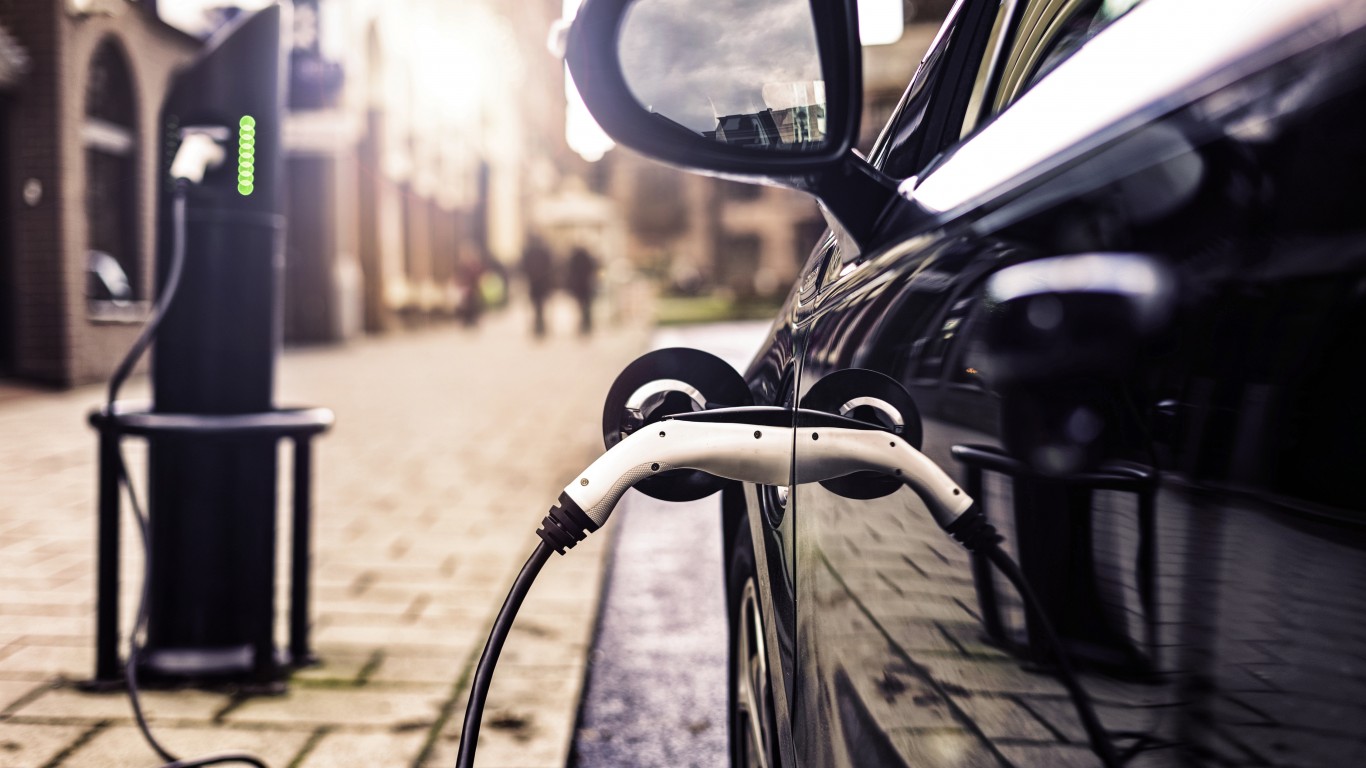Cars and Drivers
Americans Still Have 2 Very Big Concerns About Electric Vehicles

Published:
Last Updated:

The main reason that U.S. consumers give for not considering the purchase of an all-electric vehicle (EV) is the lack of charging stations. In a survey published last year, AAA reported that 63% of Americans remained unconvinced about purchasing an EV.
A report published this week by Morning Consult found little change in Americans’ willingness to purchase an EV. Some 62% of respondents said that lack of charging stations makes them less likely to consider buying an EV. Surprisingly, perhaps, 60% of respondents also said the higher initial cost of an EV is also a concern.
According to a recent report from BloombergNEF (BNEF), unit sales of EVs are forecast to rise from a record 1.1 million worldwide last year to 11 million in 2025 and then surge to 30 million in 2030 as EVs establish a cost advantage over internal combustion engine cars. China will lead this transition, with sales there accounting for almost 50% of the global EV market in 2025 and 39% in 2030. In 2040, some 60 million EVs are projected to be sold, equivalent to 55% of the global light-duty vehicle market.
The most attractive feature of an EV is savings on gasoline costs. More than nine in 10 (93%) of those surveyed by Morning Consult who say they are likely to buy or lease an EV said that savings on gasoline is the number one factor driving their decision. Nearly as many (89%) said that the lower environmental impact of EVs is a major factor, and 87% said reduced emissions are also important.
While range anxiety continues to be the top concern for potential EV buyers, almost as many cited the high initial cost of an EV. An all-electric Tesla Model 3 now costs about $35,000 for the standard model with a range of around 220 miles. A Nissan Altima with a gasoline-powered engine costs about $24,000. Even with a federal tax credit of $3,750 available for Model 3 buyers (until July when the rebate drops by half before disappearing completely in January 2020), the price difference remains significant. Among potential EV buyers in Morning Consult’s survey, 80% said that tax credits or rebates would be important in their purchase decision.
The Model 3’s price tag, however, is only slightly higher than the average transaction price of about $34,300 for new light vehicles (cars, pickups, sport utility vehicles and crossovers) sold in April. Even though EVs and other electrified vehicles have been available for several years now, IHS Markit’s principal powertrain forecasting analyst told Morning Consult: “People already know what they’re getting when they buy an internal combustion engine vehicle, and a battery electric vehicle requires a completely different relationship with the car.”
Raising public knowledge is a time-consuming and expensive job, though, one that adds to EV makers’ already high production costs. Morning Consult cites a March report from McKinsey estimating production costs for an EV maker are $12,000 per vehicle higher than comparable gasoline-powered vehicles. Put another way, “[M]ost OEMs do not make a profit from the sale of EVs.” That is not a formula for long-term success.
There may be one exception. According to data from the California New Car Dealers Association cited by Electrek, all-electric vehicle sales in the state comprised 5.6% of all new car sales in the first quarter of this year. Of about 20,500 total deliveries in California during the first quarter of this year, nearly 16,000 were Tesla Model 3s. California offers buyers of an EV a rebate of $4,500, and the state has more than 20,000 charging stations. No wonder it is considered one of the most eco-friendly states in America.
The thought of burdening your family with a financial disaster is most Americans’ nightmare. However, recent studies show that over 100 million Americans still don’t have proper life insurance in the event they pass away.
Life insurance can bring peace of mind – ensuring your loved ones are safeguarded against unforeseen expenses and debts. With premiums often lower than expected and a variety of plans tailored to different life stages and health conditions, securing a policy is more accessible than ever.
A quick, no-obligation quote can provide valuable insight into what’s available and what might best suit your family’s needs. Life insurance is a simple step you can take today to help secure peace of mind for your loved ones tomorrow.
Click here to learn how to get a quote in just a few minutes.
Thank you for reading! Have some feedback for us?
Contact the 24/7 Wall St. editorial team.